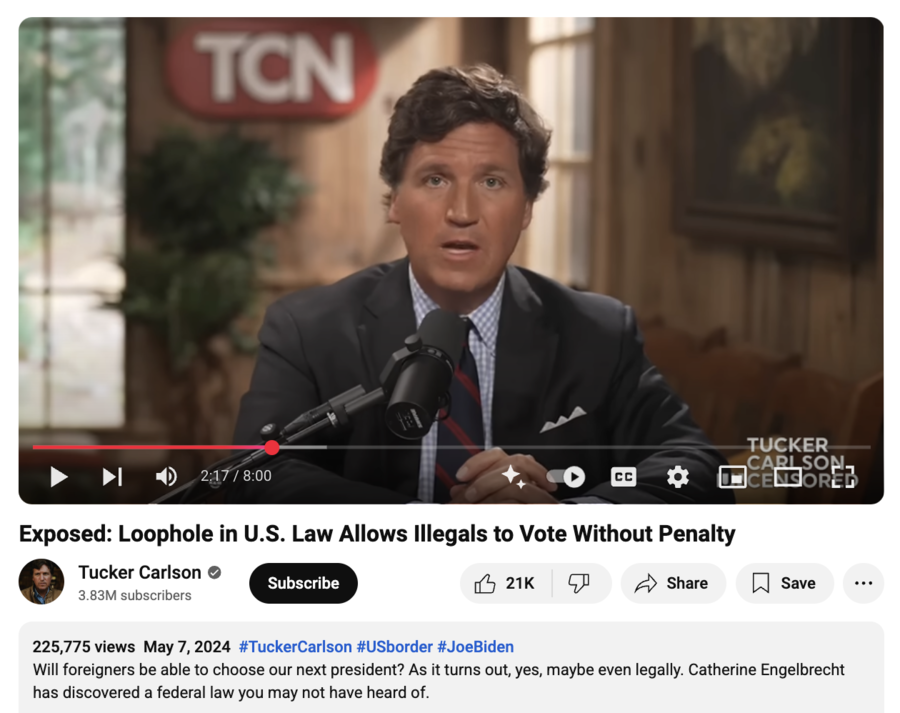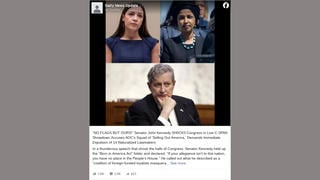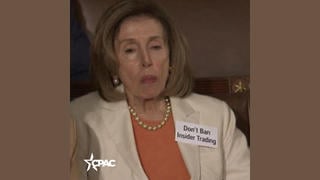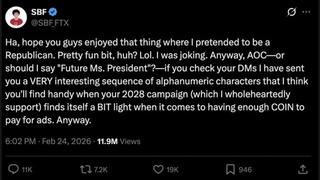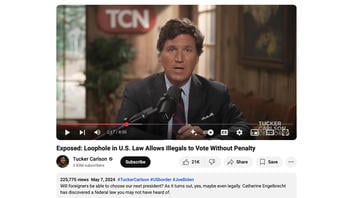
Does a "loophole in U.S. law" legally grant permission to noncitizens to vote in federal elections if they believe they are U.S. citizens? No, that's not true: A professor specializing in election law told Lead Stories that what was referred to on social media as a "loophole" described such a narrow exception that "it's hard to imagine whom it might cover". Contrary to online speculations, noncitizen voting is strongly prohibited under existing laws.
The claim appeared a video (archived here) published on YouTube on May 7, 2024, under the title:
In it, former Fox News host Tucker Carlson said (at the 2:17 mark):
Congress passed something in the US Code, the Federal Code, a line, that, unbeknownst to the rest of us, makes it legal for illegal aliens to vote in federal elections if they believe they are citizens.
This is what the video looked like on YouTube at the time of writing:
(Source: YouTube screenshot taken on Fri March 28 14:22:04 2025 UTC)
At the 4:11 mark, Carlson's guest specified that the video referenced Title 18 of the U.S. Code, alleging that, in part, it says the following:
Noncitizens can vote without penalty if, at the time they are voting, they believe themselves to be U.S. citizens.
The wording of the law is more complicated than simply believing their citizenship is in order. A Harvard Law School professor described the "belief" exception as extremely narrow and Lead Stories' search for actual pleadings based on the exception found no evidence of widespread use.
In Law: Not Every Belief Is Reasonable
18 U.S. Code § 611 (archived here) begins with an explicit warning:
(a) It shall be unlawful for any alien to vote in any election held solely or in part for the purpose of electing a candidate for the office of President, Vice President, Presidential elector, Member of the Senate, Member of the House of Representatives, Delegate from the District of Columbia, or Resident Commissioner...
When the same article of the U.S. Code mentions the people's beliefs about citizenship, it lists a very specific set of criteria and does not say it overrules other provisions (archived here) that make it illegal to falsely claim to be a U.S. citizen for any purpose:
c)Subsection (a) does not apply to an alien if--
Professor: It's Hard To Imagine Who Would Qualify
Harvard Law School Professor Nicholas Stephanopoulos (archived here), who specializes in election law and constitutional law, told Lead Stores via email on March 28, 2025:
The exception is extremely narrow, to the point that it's hard to imagine whom it might cover (maybe somebody born abroad to parents who weren't then U.S. citizens, who then moved to the U.S. in childhood and whose parents became citizens, but who didn't become a citizen him/herself). People may think this exception is much broader, but it obviously isn't.
U.S. law requires attestation of citizenship, on penalty of perjury, to register to vote. There's no indication that noncitizens actually vote in any nontrivial volume, and if they do, they're subject to criminal prosecution.
For example, when Georgia's election officials performed the voter roll audit (archived here) in the fall of 2024, they found only 20 noncitizens among 8.2 million registered voters, which amounts to 0.00024%, and all 20 cases were referred to law enforcement.
Legal Records: The Exception Is Rarely, If Ever, Claimed
Lead Stories couldn't find any court cases in which 18 U.S. Code § 611 (c) was argued as a successful defense.
Available evidence from existing legal materials mentioning Article 611 strongly suggests that subsection (c) does not legalize noncitizen voting based on people's supposed self-proclaimed beliefs.
The 1996 Illegal Immigration Reform and Immigrant Responsibility Act made noncitizens voting in federal elections "deportable" (archived here) nearly three decades ago, and that provision hasn't been repealed, as of this writing.
The Matter of Margarita Del Pilar Fitzpatrick (archived here), decided in May 2015 by the U.S. Department of Justice Executive Office for Immigration Review Board of Immigration Appeals, reads:
An alien who has voted in an election involving candidates for Federal office in violation of 18 U.S.C. § 611(a) (2012) is removable under section 237(a)(6)(A) of the Immigration and Nationality Act, 8 U.S.C. § 1227(a)(6)(A) (2012), regardless of whether the alien knew that he or she was committing an unlawful act by voting.
A 2012 court decision (archived here), which discusses a noncitizen who voted in the 2004 federal election, then applied for adjustment of status and was denied, additionally clarifies:
... by conceding that (a) he is an alien, who (b) voted in a Presidential election, Kimani conceded violating § 611(a) and established his ineligibility for the immigration benefit he needs.
It further elaborates:
§ 611(a) does not contain the word "intentionally" or the slippery word 'willfully,' which sometimes requires proof of knowledge about the law's commands. ... Nor does it require that any act be done 'knowingly.' A statute that does not mention any mental-state ( mens rea) requirement is a general-intent law.
Read more
Other Lead Stories fact checks of the claims concerning elections in the United States are here.

